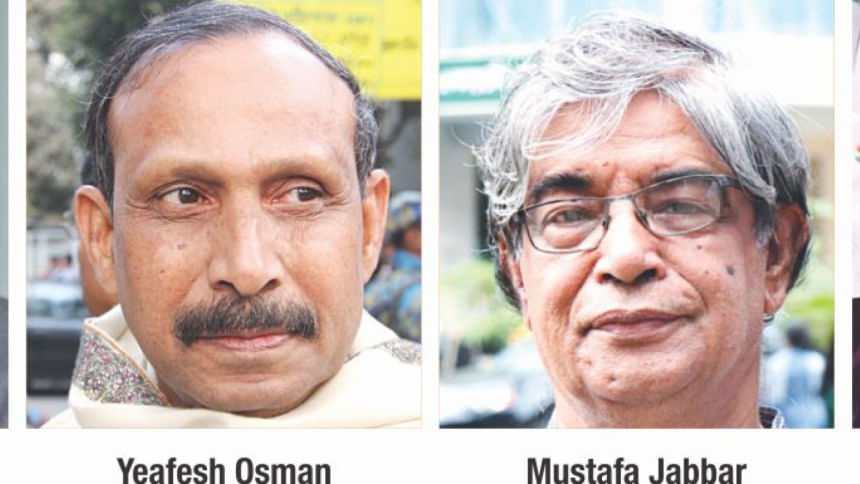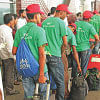Four technocrat ministers resign

All four technocrat ministers in Sheikh Hasina's cabinet tendered their resignation to the Cabinet Division yesterday, hours after the prime minister asked them to step down.
They are religious affairs minister Matiur Rahman, expatriate welfare and overseas employment minister Nurul Islam BSc, science and technology minister Yeafesh Osman and telecommunications and information technology minister Mustafa Jabbar.
The prime minister's instruction came at an unscheduled discussion at the cabinet meeting held at the Prime Minister's Office.
"According to an apex court observation, there is no scope for inclusion of unelected individuals in the election-time cabinet," Hasina was quoted by a senior minister as saying at the meeting.
Talking to The Daily Star, Yeafesh Osman said he already sent his resignation letter to the Cabinet Division following the PM's directive.
Sources also confirmed Mustafa Jabbar's resignation.
AKM Niaj Morshed, assistant personal secretary to expatriates' welfare minister, said Nurul Islam sent his resignation letter to the Cabinet Division around 6:30pm.
Abu Sayeed, personal officer to Matiur Rahman, also confirmed that the minister submitted his resignation.
Sources in the AL said that in their second round of talks with the PM today, Oikyafront leaders might demand inclusion of some of their members in the polls-time government. This is why the four technocrat ministers hurriedly stepped down to send a signal that there was no scope for unelected people to be in the cabinet.
Before the 2014 election, Hasina had offered the BNP, which had representation in parliament at the time, a number of portfolios, including home ministry. But BNP chief Khaleda Zia refused to be a part of that election-time administration and her party eventually boycotted the election.
No political parties in the Oikyafront has representation in parliament.
The Hasina-led incumbent cabinet is comprised of 34 ministers, 17 state ministers and two deputy ministers, and four of them are technocrats. Besides, PM's seven advisers and one special envoy enjoy minister's status.
The prime minister, however, didn't discuss at the meeting the size of the polls-time cabinet.
On October 22, she hinted at not making the polls-time cabinet smaller, saying she preferred not to downsize it for the sake of completing the ongoing crucial development projects.
Sources said that in place of the four technocrat ministers, the same number of lawmakers could be included in the polls-time government as ministers. Of them, two to three might be from the main opposition Jatiya Party, they said.
Jatiya Party Chairman HM Ershad, also the special envoy of the prime minister, already requested Hasina to include four of the party MPs in the election-time cabinet.
The four lawmakers are JP presidium members Kazi Feroz Rashid, Ziauddin Bablu, Salma Islam and Secretary General Ruhul Amin Hawlader.
Ahead of the last national election, Hasina in November 2013 formed a polls-time cabinet of 29 ministers with MPs from the AL, Jatiya Party, Workers Party and Jatiya Samajtantrik Dal.
That time, she had asked all her cabinet colleagues to submit their resignation to make way for the formation of the election-time cabinet.
Later, she sent the president the resignation letters of only those who were excluded from the polls-time cabinet. Sixteen ministers and 14 state ministers were dropped that time.
Those who were left out of the election-time cabinet included two technocrat ministers and one state minister. They are law minister Shafique Ahmed, industries minister Dilip Barua and state minister for science and technology Yeafesh Osman.
Shafique and Dilip were made PM's adviser with the status of a minister.

 For all latest news, follow The Daily Star's Google News channel.
For all latest news, follow The Daily Star's Google News channel. 





Comments